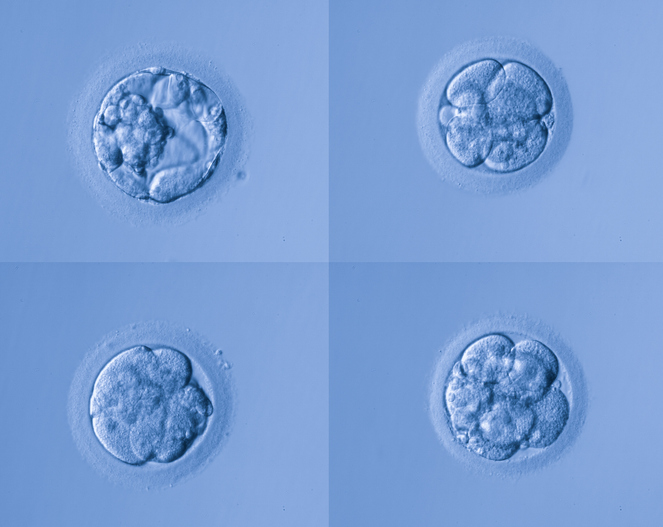.png)
.png)
As a fertility psychologist with training and education in third-party reproduction and 10+ years of experience screening egg donors, I wanted to share a little more about the rigorous psychological evaluation that takes place for potential egg donors.
Whether you are someone who is thinking about donating your eggs or someone pursuing donor egg IVF, this article is for you. Understanding the process and its importance can ensure a smooth and ethical egg donation process.
What is screening like for a potential egg donor?
Psychological screening of a potential egg donor starts with the initial application. This application digs deep into the donor’s physical, medical, and emotional history. It also digs deep into her first and second degree. The reason we need to look into family history is because certain disorders are heritable and the receiving parties need to know and fully understand a donor's complete medical picture before deciding to move forward with her.
Once a donor matches with a family, she then undergoes a psychological evaluation with a fertility psychologist. The American Society for Reproductive Medicine has set forth guidelines for Psychologists to follow when assessing potential egg donors. These guidelines are a way to ensure informed consent, to ascertain that she does not have any psychological contraindications to donating, and that she will be able to be committed and fulfill her responsibilities for the cycle.
The evaluation is an interview which will review many of the things found in the application but will delve deeper. For example, the interview will include, but is not limited to, conversations about family, work, education, medical, and psychological history. Potential emotional and social risks, understanding disclosed vs. undisclosed relationships will also be discussed. The evaluation will also include a standardized, empirically-validated test designed for the assessment and/or screening of mental and behavioral disorders. Typically, these are conducted on the same day and can be done in-persons or through a telehealth consultation.
Why would someone fail a psychological screening?
Unfortunately, not everyone is suitable for egg donation, and a psychological evaluation can make this apparent. When someone does not clear psychological screening, it can lead to disappointment for the family and woman alike.
But, psychological screening of an egg donor comes down to ethical responsibility. We need to ensure the donor’s psychological stability, informed consent, and emotional readiness which includes her understanding of the short and long term consequences of the donation process.
Further, as a clinician my job does not only include the potential donor and her well-being. It also includes the recipient family, which also includes the future human(s) that will result from the donation. This donation isn’t just a one and done type of deal. So psychological screening is not just a formality, it is a necessity.
What if I’ve donated my eggs before? Do I have to go through psychological screening again?
Things change. Life happens. Who you were and what you were doing during a previous donation cycle may no longer be the same. So just because you have successfully donated before does not always mean that you will be eligible to donate again. If you are wanting to donate again, I want to know why you want to do this again? I want to know what has changed since your last donation. You will once again complete a full clinical interview along with the standardized assessment. For donors who undergo additional cycles, ASRM recommends that a new full evaluation be conducted if more than 24 months have elapsed since the previous evaluation.
Summing it up
The American Society for Reproductive Medicine (ASRM) has clear guidelines for who is and is not eligible to donate. These guidelines are there to protect everyone involved. Remember, you are creating an entire new branch of a family tree using your DNA. So it is important that no stone is left unturned. As a therapist, our job is to ensure informed consent (meaning, prospective donors fully understand the process); that the assessment is fair regardless of race, gender, or socio-economic status; and to protect personal and sensitive information as we will be asking for a lot of personal information.
A psychologically prepared donor is essential for successful egg donation. So it is important to do your research. Understand the process and ask a lot of questions.
Egg donation with Cofertility
At Cofertility, we are striving to be the best place to be an egg donor (or what we call, a Split Member). We offer a supportive and transparent process that empowers donors to make informed decisions about their egg donation journey.
With our innovative approach, donors get to keep half of the eggs retrieved, plus:
- Free storage of their own eggs in cryopreservation for up to 10 years
- Coverage of all medical costs for the egg donation process
- Connection to the Cofertility community for support all along the way and after too
- The ability to work with the intended parents to decide together what your relationship will look like
If giving your eggs to intended parents sounds like something you would like to do, you may be able to qualify for the free egg freezing process and have your donation process covered too.
Find out more about Cofertility, and take our quiz to see if you qualify for Split!
We believe that every donor deserves to have a positive and empowering experience, and we are committed to making that a reality. That’s why Cofertility was named one of the Best Egg Donor Programs by Egg Donor Connect.





.png)




